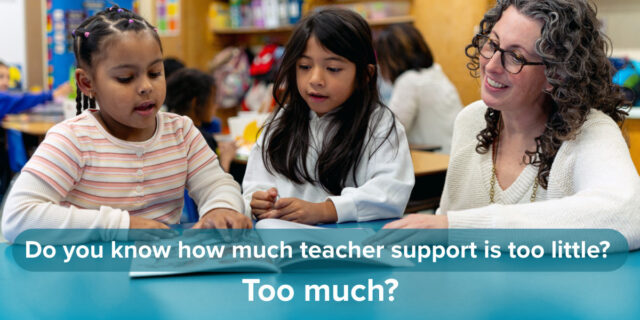
In Teaching Literature In The Context Of Literacy Instruction, coauthors Jocelyn Chadwick and John Grassie explore how the familiar literature we love can be taught in a way that not only engages students but does so within the context of literacy instruction, reflecting the needs of today’s classrooms. They address complex questions secondary English teachers wrangle with daily: Where does literature live within the Common Core’s mandates? How can we embrace informational texts in our literature classrooms? And most importantly, how can we help students recognize that canonical works are relevant to them? In today's post and video, the authors discuss a 21st-century literacy.
What Literacy Means Today
By Jocelyn Chadwick and John Grassie
Just what does literacy look like today? Sound like? How does literacy work for our 21st century students today? Unprecedented and ongoing challenges confront our students in terms of recognizing, interpreting, and being able to draw on printed and digital information which surrounds them daily. Today, literacy belongs to all students PreK–12. ELA teachers play a significant and unrelenting role in the nourishing this literacy—providing learning pathways to help students understand the texts we teach in terms of meaning and nuance from a personal and local perspective to a global one.
Within this context, canonical texts move far and wide beyond their historical environs to speak, literally, to our students’ realities now. Both canonical and modern texts, then, contain meanings, literacies for the initial intended audience, and though always retaining its core meaning, texts bend and allow for extended messages and meanings as the audience varies widely. With each new generation coming to the same text, with each new culture, each new translation stands as a critical element in describing what is increasingly referred to as global literacy.
As students explore this expanded notion of literacy, they, too, must learn to recognize the concepts of similarity and difference in the text. What does this mean to them; how do the characters and events in the text relate to the world students recognize around them, or to societies quite different from theirs. Does the author’s story refer only to the events described in the text? Or, is there a greater message or lesson found in the work that continues to live and breathe beyond, thereby making the text one that is universal to all humankind as life and history continue to move? Similarly, how does the setting and style of the writing help make it a more universal story? Developing the necessary skills and insights to understand global literacy is its own, unique form of education for students—a kind of living, or protean, lifelong literacy—something that will serve them well long after they leave the classroom.
The Literacy Challenge:
What is the importance of literacy beyond the classroom and throughout life? Addressing this question requires recognizing the necessity of communication skills which all of us must utilize in virtually all forms of personal, social, professional, and educational situations. In addition to recognizing specific words and understanding how best to use them, we must also focus on the need to develop critical reading skills. Doing so enables each of us to recognize and understand the intended audience, motivation, premise, outcome and impact of the written material before us. This is an undeniable part of reality in our world. The literature we teach—canonical and modern—blended so as to create a woven, historical and human tapestry—illustrates the import of global literacy.
This enhanced scope of literacy enables readers to identify critical reflections of life in all forms of literature. The adventure of reading provides us with critical understanding of how others experience life’s challenges and reflections of who we have been, who we are, who we could be. Together these experiences help guide us along the path of exploring our true voice and the manner in which we choose to express ourselves. Taking all of this into account underscores the continued importance of literature. The experience of reading has always reflected and will continue to capture unique views of the world, and in so doing, guides us toward a better understanding of the human experience and ourselves within it.
PD Nugget—Inside Out
Led by a presentation from the teacher, the class selects from several short stories written by an author whose work deals with characters and events outside of an American setting. Students may not select a short story that resembles their own culture or class. As the students read their selected story, they should take note of similarities, differences, events or characters, actions, etc. that they feel worthy of noting, discussing, or anything worthy of further investigation. Then, as a class, students will discuss their selected story, sharing differences and similarities between themselves, their world, and what they notice about the characters in the text. During the discussion, students work together to create a chart recognizing the following elements:
- What is different about their world?
- Why are these differences important?
- How would you fit into the characters’ world?
- What elements are similar to the students’ world?
- What similarities do students see between themselves and the characters?
- How does the characters’ world compare with the students’?
- What do they see of themselves and their world in these works?
- What did students learn about other cultures and themselves in the selection?
This kind of activity can be replicated each time students read texts. In doing so, they not only begin to understand how these texts live beyond the specified time range, but also that these texts yet speak and relate to them. Now, they begin to understand how literature makes meaning writ large.
For additional information, contact Heinemann Professional Development.
Click here to learn more about Teaching Literature In The Context of Literacy Instruction.
♦ ♦ ♦ ♦


Jocelyn A. Chadwick has been an English teacher for over thirty years—beginning at Irving High School in Texas and later moving on to the Harvard Graduate School of Education where she was a professor for nine years and still guest lectures. Dr. Chadwick also serves as a consultant for school districts around the country and assists English departments with curricula to reflect diversity and cross-curricular content. For the past two years, she has served as a consultant for NBC News Education's Common Core Project for Parents, ParentToolkit. In June 2015, Chadwick was elected Vice President for the National Council of Teachers of English.
John Grassie is a veteran broadcast journalist, with more than 25 years’ experience producing news coverage, program series, and documentaries for Public Television, NBC News, and Discovery. During his broadcast career, Grassie’s work received numerous awards for excellence in journalism.


